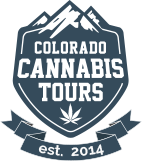Whole Plant Medicine: Full-Spectrum CBD vs. Broad-Spectrum CBD vs. CBD Isolates
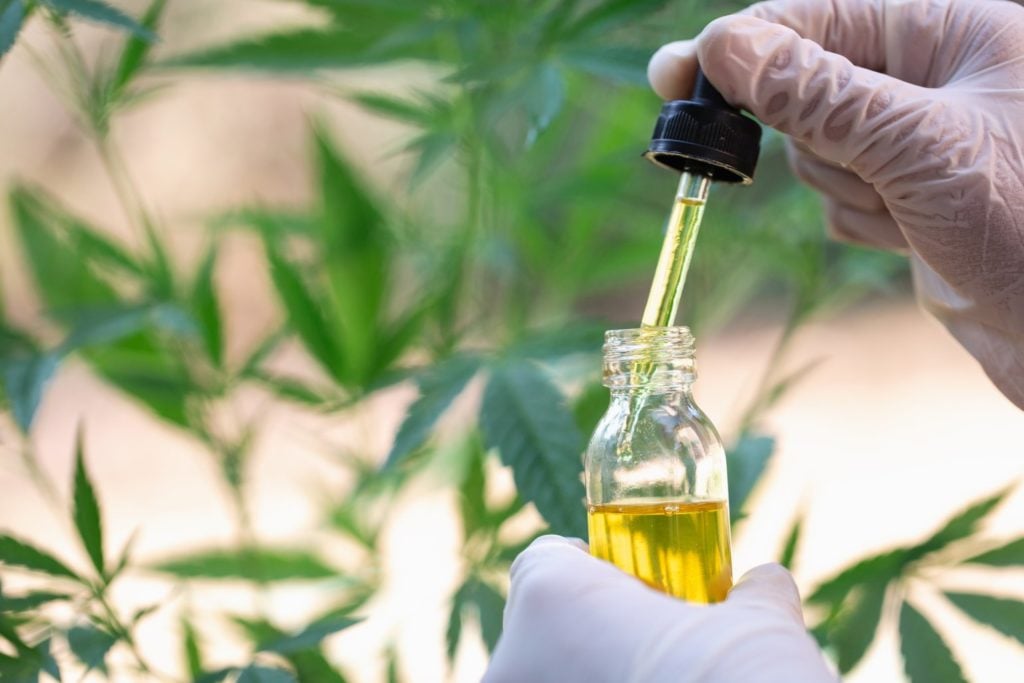
We’ve entered the age of CBD, and for your average person, it’s a confusing one. Every store sells CBD these days, and you may already have an idea of what CBD is. It’s derived from the cannabis plant, and it does not have a high effect like recreational cannabis. Reports show that CBD can help with pain, restlessness, anxiety, depression, seizures, and other ailments. Many people across the world swear by it, and ever since the 2018 Farm Bill Act was passed, the scientific community has been working to find out all the effects and benefits CBD has for patients.
CBD stands for cannabidiol, and it’s the second active ingredient found in the cannabis plant, but it is not psychoactive, unlike its counterpart THC. Buying CBD products are federally legal as long the product has less than 0.3 percent THC in it. It’s quite easy to find it in many convenience stores.
With that all said, there is still a lot to learn about the cannabis and hemp plant. For decades, misinformation and fear-mongering plagued the U.S., and it has only been recently when people are waking up to the plant’s full medical benefits. Learning more about CBD, and cannabis, in general, can help many people learn about all its benefits and help bring in a new age of medicine.
In this post, we’ll look at a few CBD terms: full-spectrum CBD, broad-spectrum CBD, CBD isolates, whole plant medicine and the entourage effect. This short guide will help you make sense of the whole plant medicine and the CBD world. Let’s get started.
What is Whole Plant Medicine?
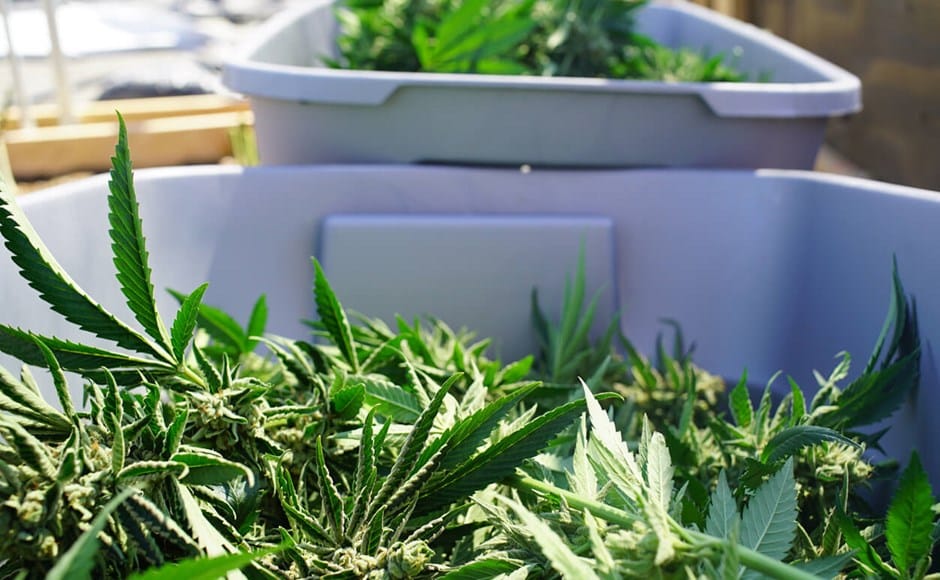
Whole plant medicine is a term you don’t need to overthink. Whole plant medicine is simply any type of medical marijuana product that uses all of the chemical components and phytocannabinoids found in the cannabis plant.
Phyto-what? A phytocannabinoid is a molecule that plants synthesize. In the cannabis plant, there are over 100 known phytocannabinoids, and they all offer benefits for humans and animals. Two of the most known phytocannabinoids are CBD and THC. We think of THC as that thing that gets us stoned but it has medicinal properties as well, such as more pain relief and anxiety relief.
Whole plant medicine uses it all. Look for the full-spectrum label on a CBD product, because otherwise, you may not be getting all the benefits cannabis can provide.
However, you may need to do a little digging to figure out if the product uses the entire plant or not. The CBD product may be full-spectrum, broad-spectrum or just an isolate.
If you want to take a class or tour about how CBD is made, check out our Hemp CBD Tour in the Denver area.
Full Spectrum CBD vs Broad Spectrum CBD vs CBD Isolates
Most CBD products are labeled as full-spectrum CBD, broad-spectrum CBD or CBD isolates. Each of these CBD products are considered cannabis concentrates so let’s break down these types of CBD so anyone with limited or extensive cannabis knowledge can understand.
CBD Isolates & Crystallines
What are CBD Isolates?
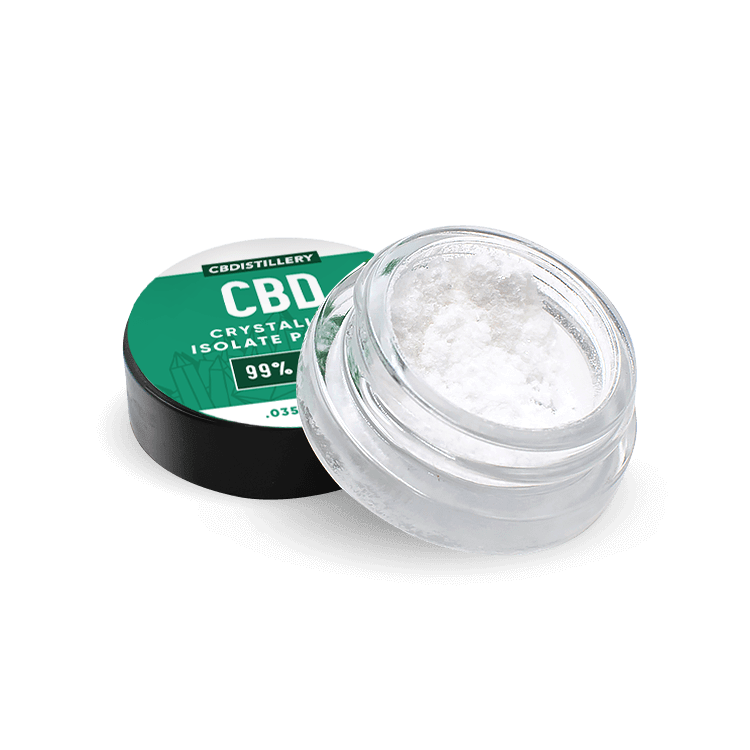
A CBD isolate is any product that only has CBD and none of the other cannabinoids produced by the cannabis or hemp plant. It is considered the purest form of CBD because all other compounds have been removed.
Some CBD isolates come in the form of CBD crystals, CBD powder or CBD crystalline. CBD isolates can be less expensive compared to full-spectrum and may offer some benefits when taken in very high doses, but it doesn’t have the full entourage effect, which you’ll find out more in the last chapter of this article.
How Are CBD Isolates Made?
The CBD isolate process is quite interesting. Using extraction the CBD is removed from the plant, and the manufacturer purifies it for a while. This is to ensure that there is nothing else in the extract except the CBD.
Then, the CBD goes through a chilling process or winterization. This removes any contaminants leftover from the extraction process. All that’s left is pure CBD. It’s a complex process, but it delivers the purest form CBD available.
How to Use CBD Isolates?
You can use CBD powder or CBD crystalline in many ways, such as making edibles or consuming orally as a tincture or soft gel.
You can experiment by making different types of homemade edibles and tinctures, however, it is always recommended to start small. CBD is one of those medicines where a little goes a long way.
If you aren’t feeling any of the benefits from the CBD isolate, you may need a full or broad-spectrum CBD oil product to experience the entourage effect and full medical benefits.
Full-Spectrum CBD
What is Full-Spectrum CBD?
Full-spectrum CBD, or pure spectrum CBD, is any CBD product that contains the all the of cannabinoids, terpenes, flavonoids and fatty acids found in the entire hemp plant.
This type of CBD has over 100 different cannabinoids and here are a few you should expect; (CBD) Cannabidiol, (THC) Tetrahydrocannabinol, (CBG) Cannabigerol, (CBN) Cannabinol and (CBC) Cannabichromene.
Remember, even though there is THC, the typical hemp plant has very little THC, less than 0.3%.
Because all the cannabinoids are present, users tend to experience what is known as, the entourage effect. This means all the different cannabinoids work together, boosting each cannabinoid effect which creates a product that has improved therapeutic benefits that are more effective than CBD isolated products.
Full-spectrum vs. CBD Isolates
Full-spectrum CBD has all the cannabinoids, terpenes and flavonoids found in the plant, whereas, CBD isolates are made up of purely 99.9% CBD. So it may be confusing to understand what is best to use when it comes to medicinal properties.
The Lautenberg Center for Immunology and Cancer Research in Israel conducted a study to find the effectiveness of full-plant extracts compared to CBD isolates.
In their summary they state, “In all of the tests, the isolated CBD was ineffective both before and after a certain dosage, while the effectiveness of the full-spectrum solution continued to increase as higher doses were administered. The results all indicate that CBD is only effective against swelling and pain at a certain dose, and that cannabis solution containing a full range of cannabinoids will continue to provide corresponding effects as the dosage is increased.”
They found that full-plant, full-spectrum CBD effectiveness continued to increase as long as the right doses were administered, whereas, CBD isolates were ineffective regardless of the dosage.
How is Full-Spectrum CBD Made?
There are a few ways full-spectrum CBD can be extracted from the hemp plant and this process has evolved over time. Full-spectrum has been known to be extracted by butane, CO2, alcohol, lipid infusion and more. However, because of the rising concern of using a harsh chemical such as butane, propane, and alcohol in cannabis products, these solvents have been used less and less.
Commercial CBD companies use an extraction machine and a process that is pretty straight forward.
Step 1: Add only the flowers
They add only the buds or flowers into the CBD extraction machine because this is where most of the trichomes and critical components house themselves.
Step 2: Decarboxylation process
This is the most fascinating part. Marijuana does not directly make the compounds CBD, THC, CBC or any of the cannabinoids present. The plant synthesizes a range of cannabinoids acids such as CBDA, THCA, THCVA, CBGA, CBCA (and many more) that must be activated through decarboxylation. This is the process of heating up the cannabinoid acids to transform them into the cannabinoids that interact with our endocannabinoid system.
So that’s exactly what the extraction machines does. It uses a combination of heat, pressure and a solvent, such as MCT oil, to pull out all of the phytocannabinoids, terpenes, flavonoids and other chemical compounds present in the plant.
Once extracted into the MCT oil, this full-spectrum CBD oil can be used in a number of different products.
How to Use Full-Spectrum CBD?
Full-spectrum CBD usually comes in one of three forms; as a tincture, as a topical or as an oral medication such soft gel tablets.
Unlike most medicine, it’s pretty much impossible to overdose on it. With that said, it’s wise to follow the instructions on the product you’ve bought. It is recommended to the first start consuming in smaller doses, and then work your way up or adjust accordingly. Talk to your doctor if you have any questions or concerns.
If the product contains an ample amount of THC, we encourage you to start small. Everyone handles THC differently, and someone with low tolerance may experience undesirable effects like paranoia or anxiety. Even if the product has very little THC, if you take a lot of it, you may feel some effects, though it will not be nearly as powerful as taking pure cannabis.
Though THC, when taken correctly, can have positive benefits too.
Broad-Spectrum CBD
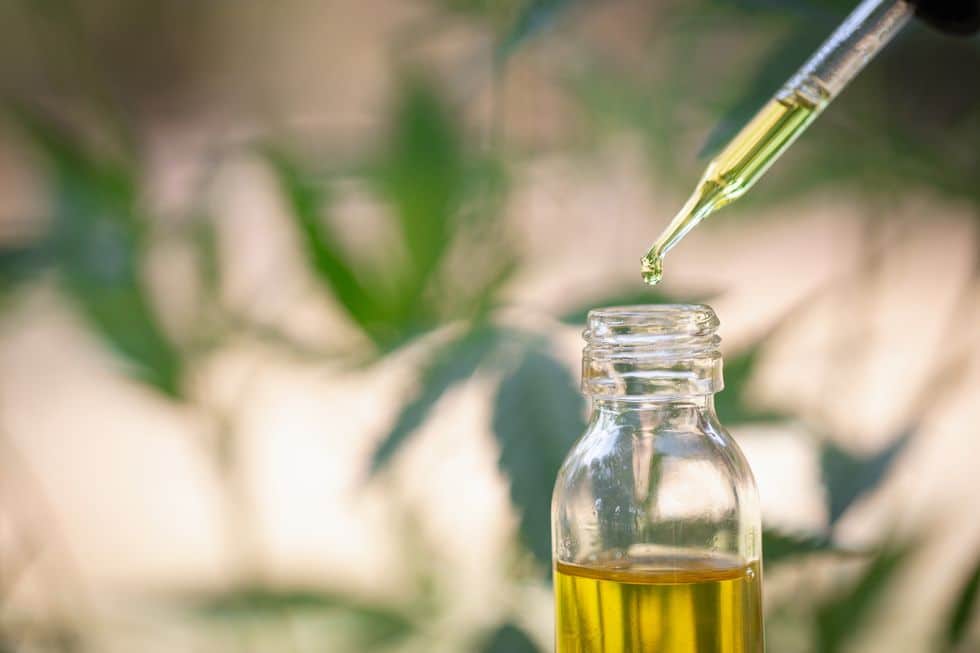
What is Broad-Spectrum CBD?
Broad-spectrum CBD is very similar to full-spectrum as it uses all of the hemp plant’s cannabinoids except for THC which completely removed during the extraction process. If you’re sensitive to THC, or the state you’re in is laying down the law on THC, broad-spectrum CBD is a great way to get the effects you want without the high of THC.
How is Broad-Spectrum CBD Made?
Broad-spectrum CBD oil uses the same extraction method to full-spectrum, but there is an extra step added into the process. After decarboxylation, the extract goes through a chromatography process to separate the THC from the rest of the cannabinoids. The amount of THC content in hemp is almost nonexistent but broad-spectrum makes sure that every single bit is gone.
How to Use Broad-Spectrum CBD?
With broad-spectrum CBD oil, you don’t have to worry about consuming too much CBD, but you should follow the same instructions as the full-spectrum.
Take the smallest recommended amount, and then adjust from there according to how you react. Again, talk to your doctor if you are unsure how much you should take, or whether or not it can benefit you.
The good thing is that it’s impossible to feel any buzz from broad-spectrum because there is no THC in it whatsoever. Those who are sensitive to THC can rejoice at this fact.
The Entourage Effect
Now, let’s talk about the entourage effect definition. The entourage effect meaning is something you may hear thrown around in the CBD circles, but you may not understand what it is.
What is the Entourage Effect?
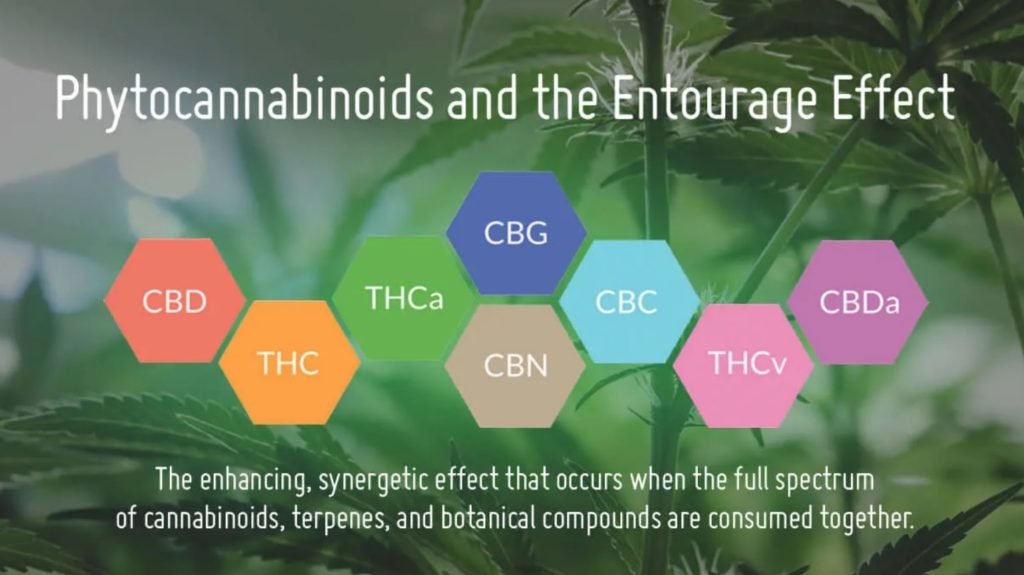
Simply put, the entourage effect is the idea that whole plant medicine is better than isolates because all of the cannabis compounds and cannabinoids are working together in synergy. The results, a more effective medicine, with an increase in therapeutic benefits to relieve an array of ailments.
With over 100 phytocannabinoids, it is understandable that many people want them all, and not just isolated CBD compound. Here are some examples of what other parts of the cannabis plant may do for you.
Flavonoids: Cannabis flavonoids are called quercetin and they may have anti-inflammatory effects, as well as antiviral and antioxidant.
Terpenes: These molecules are responsible for cannabis’s iconic smell, and terpenes are commonly used in aromatherapy to relieve mood or restlessness. If you want CBD oil with terpenes, look for “terpenes CBD” or “CBD terpenes on the label.”
The cannabis or hemp plant has so many other cannabinoids as well, and as the science on it continues to develop, there may be other benefits found.
Some people may prefer isolates because it’s easier to consume more CBD that way, but the entourage effect is becoming a more popular philosophy. Many cannabis consumers and marketers point out the importance of the entourage effect.
The science on the entourage effect is still out. You can find information online saying it exists, saying it doesn’t exist, or findings that are a little bit in-between. Because the curtain on cannabis study isn’t fully lifted, there is a lot we still don’t know about it.
Besides the entourage effect, CBD science is still unknown. It has different effects on different people, and there is no risk in trying it out for yourself and seeing how it affects you. Chances are, you may find some benefit from taking CBD, be it full or isolated.
Article Recap:
CBD is federally legal as long as the THC content level is under 0.3%.
Whole plant medicine is any type of marijuana product that uses all of the chemical components and phytocannabinoids found in the cannabis plant.
CBD Isolates vs Full-spectrum vs. Broad-spectrum: Full-spectrum CBD has all the cannabinoids, terpenes and flavonoids found in the plant, whereas, CBD isolates are made up of purely 99.9% CBD. Broad-spectrum CBD oil is the same as full-spectrum except THC is removed.
The entourage effect is the idea that whole plant medicine is better than isolates because all of the cannabis compounds and cannabinoids are working together in synergy.
- Psilocybin Mushrooms in Colorado | Is It Legal & Where You Can Get Some - April 20, 2024
- Weed Measurements Guide: Marijuana Quantities, Weights & Prices - July 1, 2023
- Moldy Weed | Risks, Identification, and Smoking Safety - June 24, 2023
